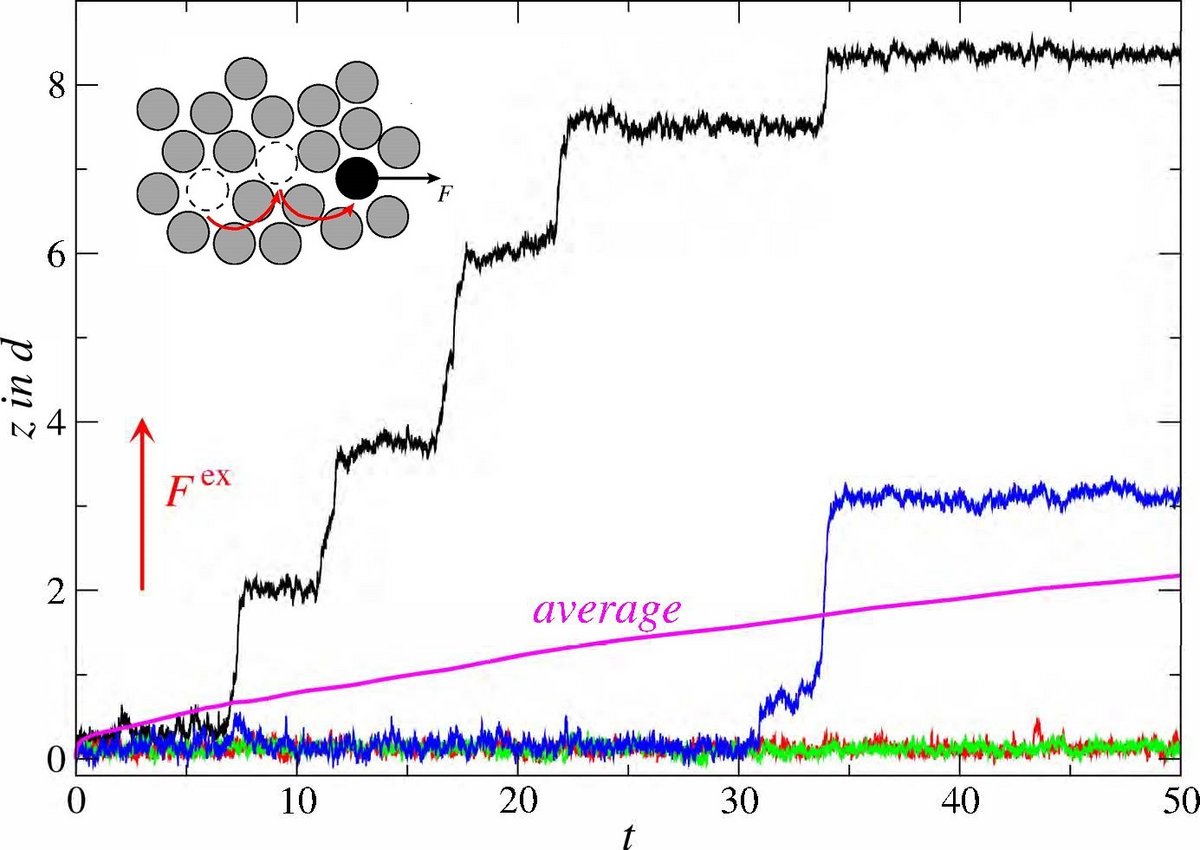De-pinning transition of colloidal probes forced through soft solids

Colloidal probes are used as sensors of local structural processes in complex environments. If a strong external force is applied inter alia the nonlinear force-velocity relation can be measured. It provides information on the local viscoelastic properties of the complex fluid or soft solid. Generally, in dense fluids, the probe’s friction coefficient decreases strongly with increasing force. If the probe is pinned in an amorphous soft solid, the probe remains localized by the nearest-neighbor cages for small enough forces. Then the stationary probe density distribution displays the local cage and its plastic deformation. Close to the de-pinning threshold of a probe in glass, highly intermittent dynamics sets in where the probe particle undergoes a combination of strongly localized motion and rare, increasingly long-ranged excursions, leading to anomalous force-induced diffusion behavior.
Senbil, N., M. Gruber, C. Zhang, M. Fuchs and F. Scheffold. Observation of strongly heterogeneous dynamics at the depinning transition in a colloidal glass. Phys. Rev. Lett., 122, 108002 (2019)
Gruber, M., G.C. Abade, A.M. Puertas and M. Fuchs. Active microrheology in a colloidal glass. Phys. Rev. E., 94, 042602 (2016)
I. Gazuz, A.M. Puertas, T. Voigtmann and M. Fuchs. Active and Nonlinear Microrheology in Dense Colloidal Suspensions, Phys. Rev. Lett., 102, 248302 (2009)
